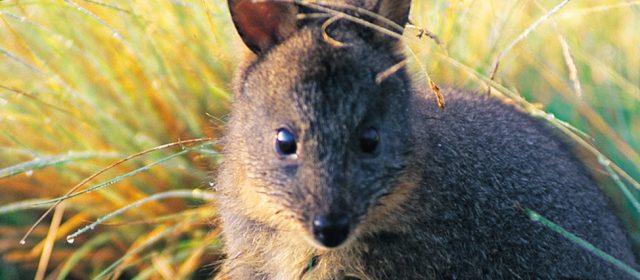Bio-Calendar
Nestled in one of Australia’s most remote and breathtaking locations, Cradle Mountain Lodge is surrounded by an array of unique natural wonders throughout the year.
Explore our bio-calendar to ensure you don’t miss the seasonal highlights of this pristine wilderness.
JANUARY
• Spreading Guinea Flower, Golden Rosemary & Daisy flowering
• Snow gums in bloom
• Rufus Wallabies feasting on Scorparia flowers
• Echidnas active in the early morning and late afternoon
• Occasional sightings of Tasmanian Devils
FEBRUARY
• Mountain Rocket and Silver Banksia in full bloom
• Snow Gums flowering
• Magnificent Leatherwoods in bloom
• Myrtles displaying vibrant green foliage
• Fruiting Mountain Rocket
• Occasional sightings of Tasmanian Devils
MARCH
• Mountain Rocket & Silver Banksia in bloom
• Tasmanian Waratah, Myrtles, Leptospermum, Snow Gums, Mountain Rocket, Richea Scorparia, and Button grass easily viewed from the Lodge
APRIL
• Tasmania’s Fagus, Australia’s only winter deciduous tree, displays its spectacular autumn colours from rust red to brilliant gold
• Tasmanian Waratah, Myrtles, Leptospermum, Snow Gums, Mountain Rocket, Richea Scorparia, and Button grass visible from the Lodge
MAY
• Tasmania’s Fagus completes its cycle with stunning autumn colours
• Tasmanian Waratah, Myrtles, Leptospermum, Snow Gums, Mountain Rocket, Richea Scorparia, and Button grass visible from the Lodge
JUNE
• Chance of snowfall
• Throughout the year, guests are likely to see an abundance of Wallabies and Possums. Extended stays may offer sightings of Wombats, Quolls, and Tasmanian Devils
JULY
• Chance of snowfall
• Nearby Pencil Pine Falls and Kynvet Falls offer scenic walks through ancient Myrtle rainforests
• The King Billy track leads to a magnificent King Billy Pine towering above the forest, with a platform boasting clear-day views of Cradle Mountain
AUGUST
• Chance of snowfall
• Throughout the year, guests are likely to see an abundance of Wallabies and Possums. Extended stays may offer sightings of Wombats, Quolls, and Tasmanian Devils
SEPTEMBER
• Native flora such as Boronia, Banksia, and Snow Gums in bloom
• Young Tasmanian Devils and Spotted-tailed Quolls display playful behaviour
OCTOBER
• Playful Platypus are active for longer periods during their mating season
• Native flora such as Tasmanian Waratah, Boronia, Banksia, and Snow Gums in bloom
NOVEMBER
• Native flora such as Tasmanian Waratah, Boronia, Banksia, and Snow Gums in bloom
• Playful Platypus active for longer periods during their mating season
• Echidnas frequently spotted in the early morning or late afternoon
DECEMBER
• Bird enthusiasts can enjoy sightings of Honeyeaters, Wrens, and Red Breasted Robins
• Tasmanian Christmas Bells in bloom
• Echidnas active in the early morning or late afternoon


